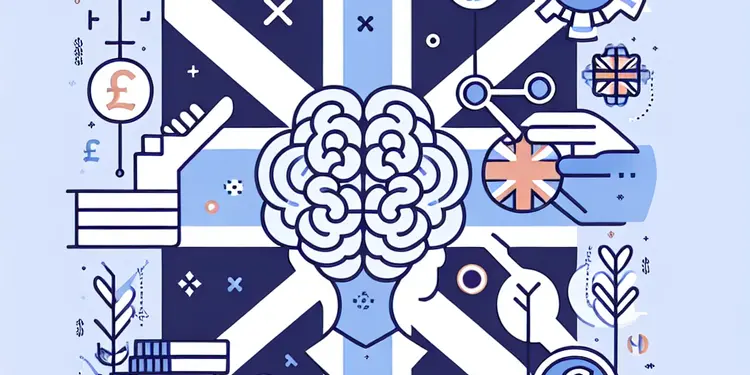
Find Help
More Items From Ergsy search
-
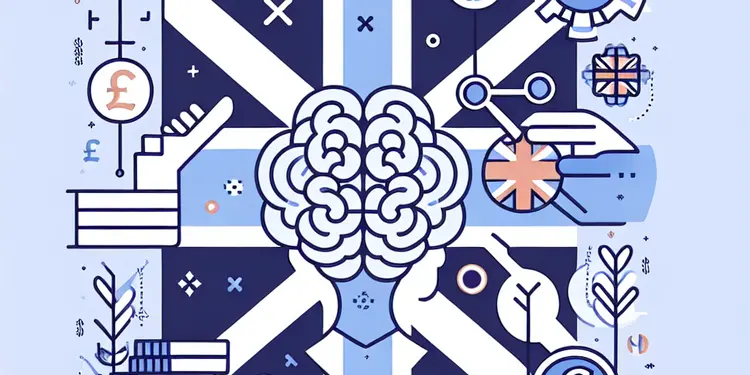
How does Huntington's disease affect cognition?
Relevance: 100%
-

What is Huntington's disease?
Relevance: 82%
-
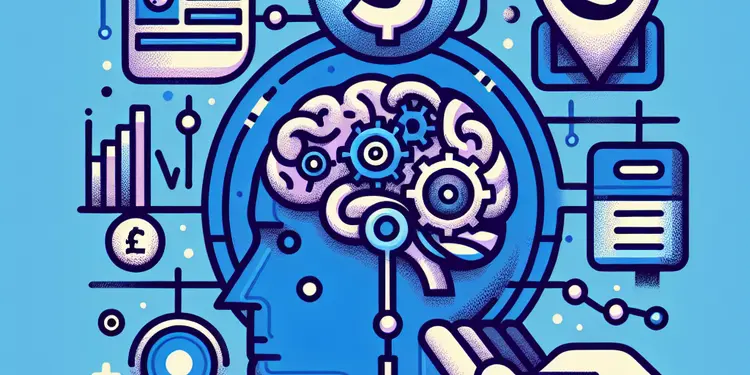
What are the symptoms of Huntington's disease?
Relevance: 81%
-
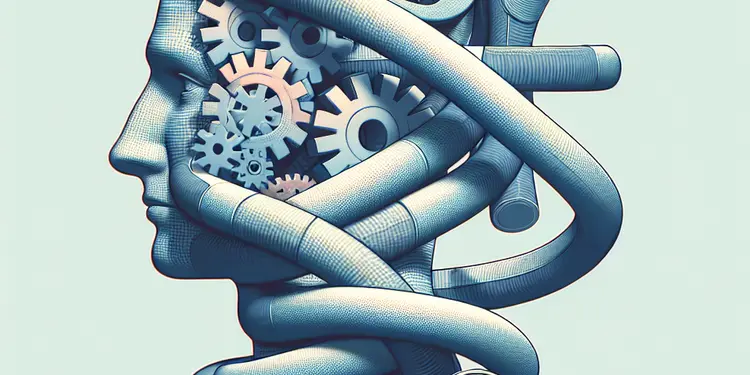
Is Huntington's disease fatal?
Relevance: 80%
-

How is Huntington's disease diagnosed?
Relevance: 77%
-
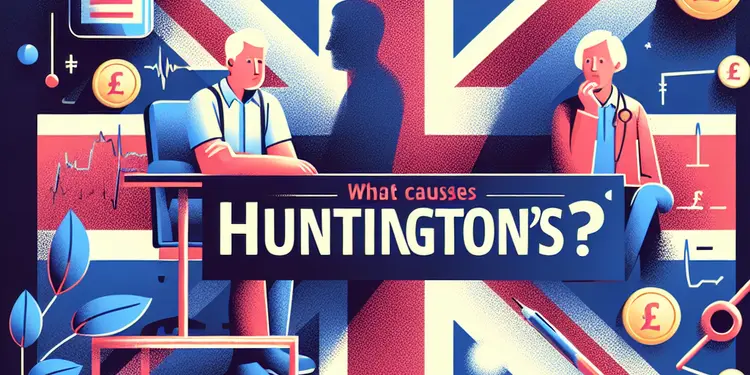
What causes Huntington's disease?
Relevance: 75%
-

Can Huntington's disease be cured?
Relevance: 73%
-

What research is being done on Huntington's disease?
Relevance: 72%
-

Can lifestyle changes help manage Huntington's disease?
Relevance: 71%
-
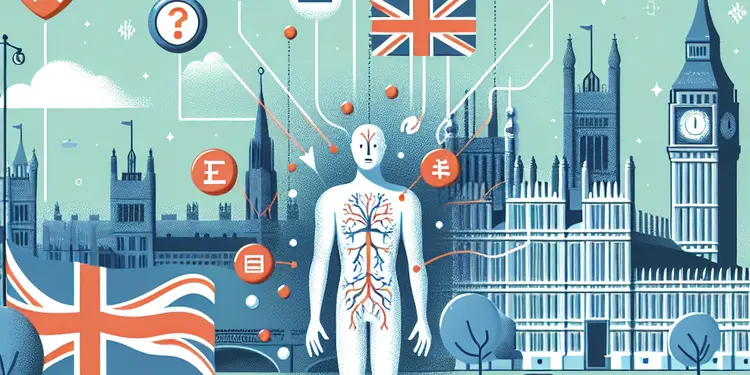
How does Huntington's disease affect emotions?
Relevance: 71%
-
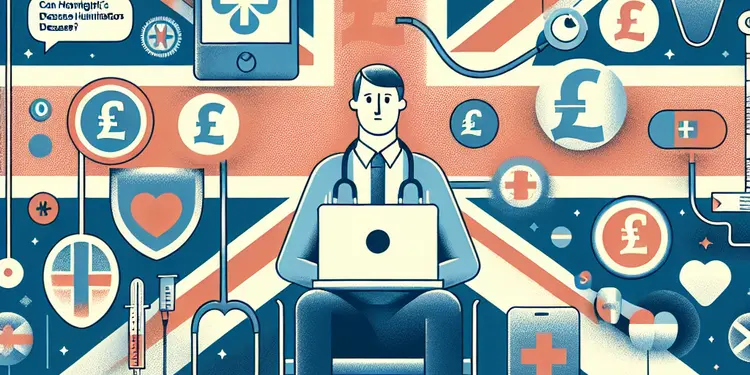
Can Huntington's disease be prevented?
Relevance: 71%
-

What is the role of genetic testing in Huntington's disease?
Relevance: 68%
-

At what age do symptoms of Huntington's disease typically appear?
Relevance: 68%
-
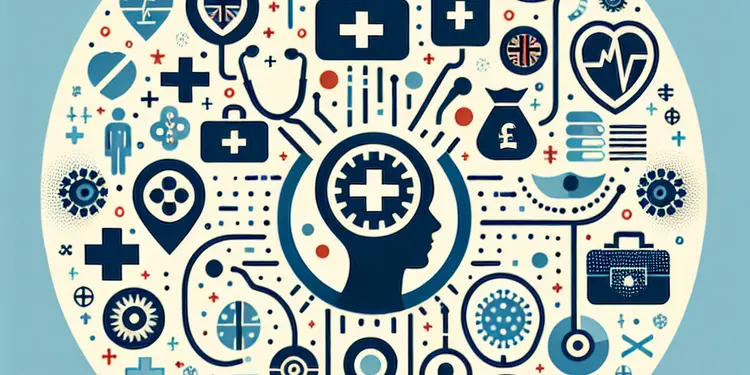
What kinds of specialists are involved in treating Huntington's disease?
Relevance: 67%
-

How does Huntington's disease affect movement?
Relevance: 67%
-
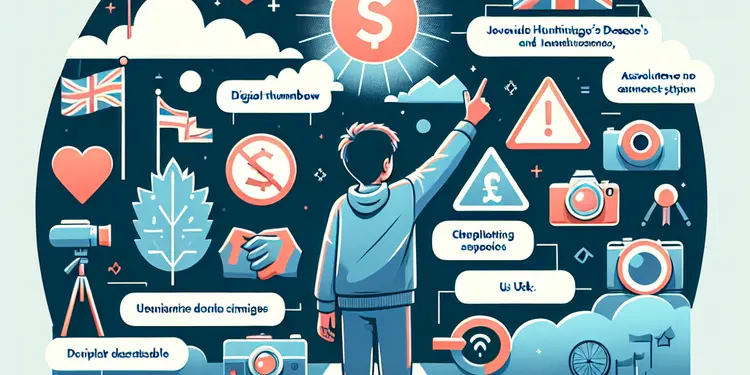
What is Juvenile Huntington's disease?
Relevance: 56%
-

How is Huntington's disease inherited?
Relevance: 54%
-

Are there treatments available for Huntington's disease?
Relevance: 53%
-

What support is available for families affected by Huntington's disease?
Relevance: 47%
-
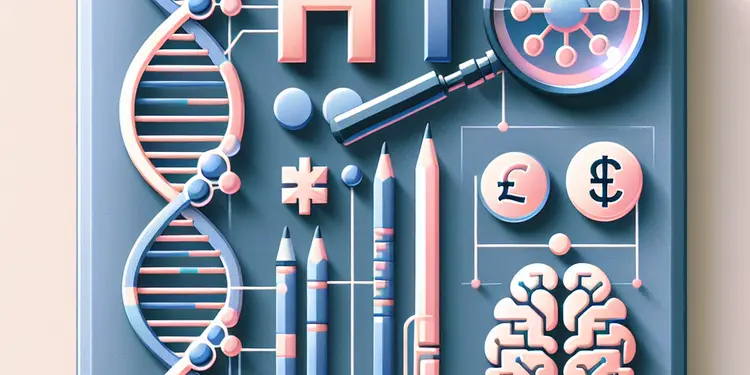
What role does the HTT gene play in Huntington's disease?
Relevance: 45%
-

Are there psychological impacts of menopause that affect cognitive health?
Relevance: 35%
-
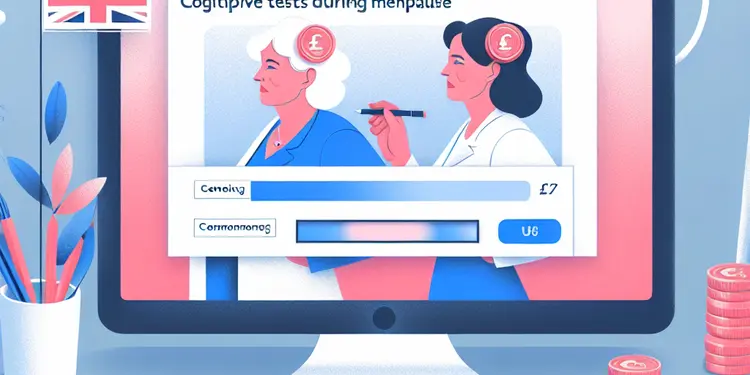
Should women take cognitive tests during menopause?
Relevance: 34%
-
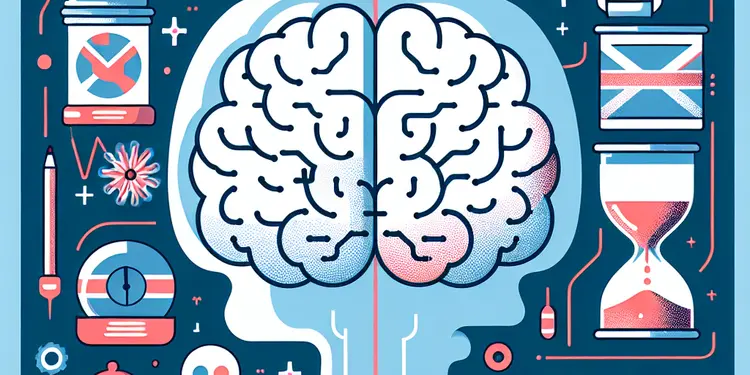
Do all women experience cognitive decline after menopause?
Relevance: 34%
-

What are the signs of early cognitive decline related to menopause?
Relevance: 34%
-
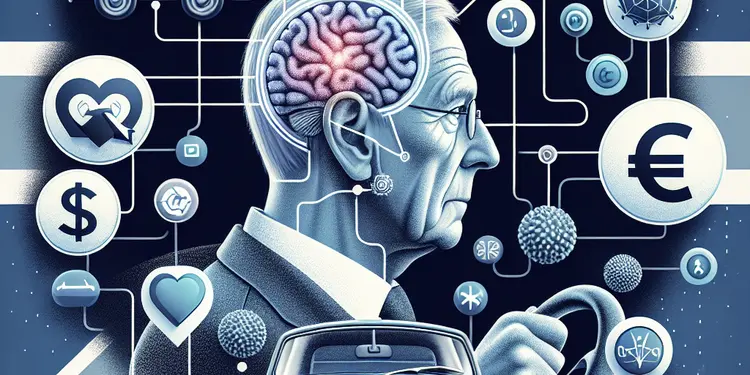
How do cognitive changes in older adults influence driving risk?
Relevance: 32%
-
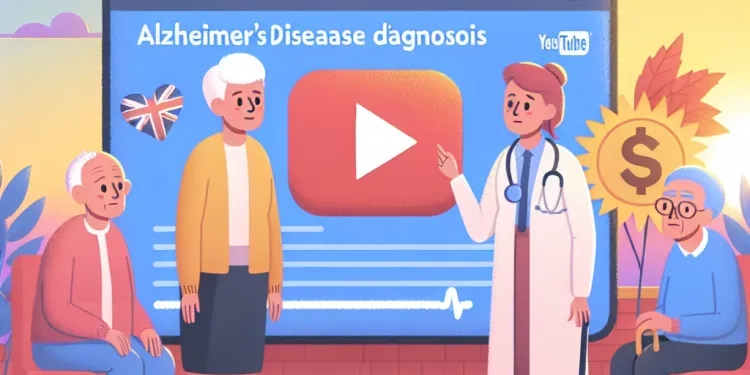
How is Alzheimer's disease diagnosed?
Relevance: 32%
-

How can healthcare providers support women in managing menopause-related cognitive changes?
Relevance: 31%
-
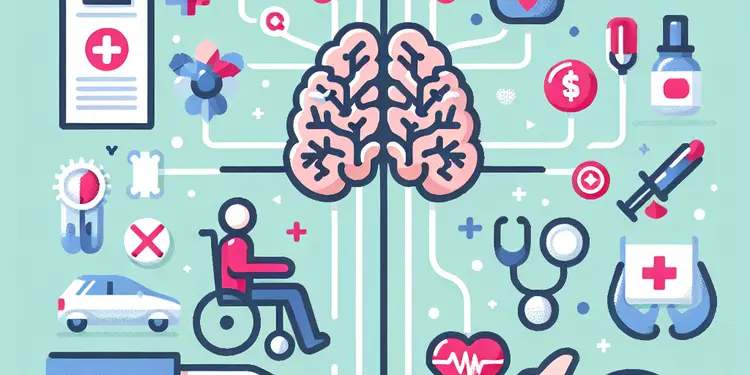
What are the primary symptoms of motor neurone disease?
Relevance: 29%
-
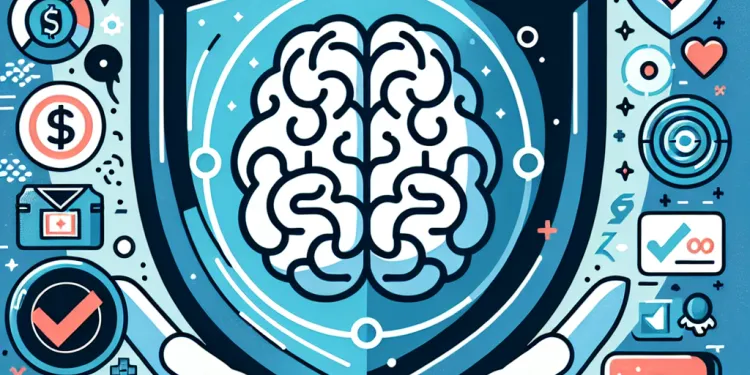
Who is at risk of developing Alzheimer's disease?
Relevance: 29%
-
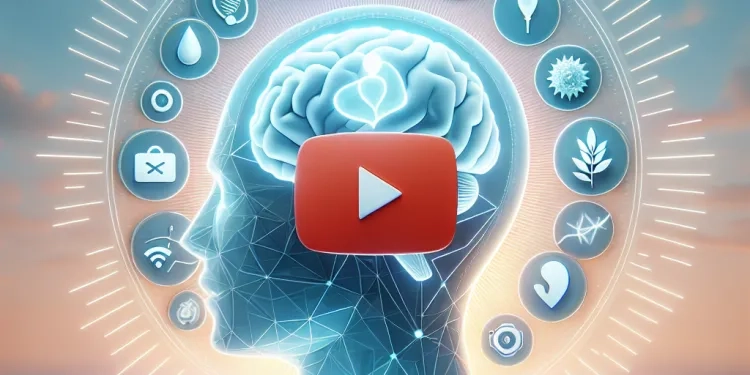
Can Alzheimer's disease be prevented?
Relevance: 28%
-
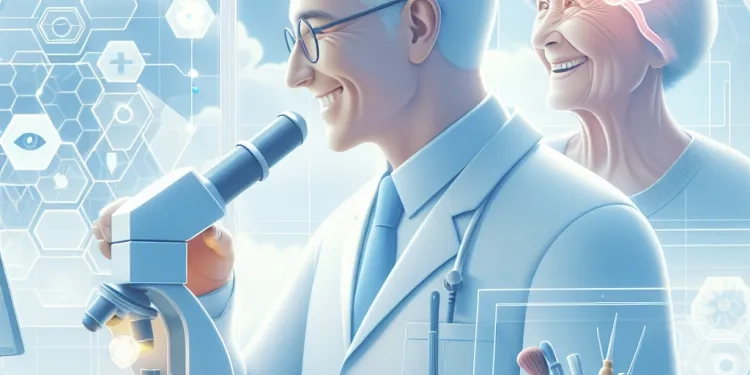
What is Alzheimer's disease?
Relevance: 28%
-
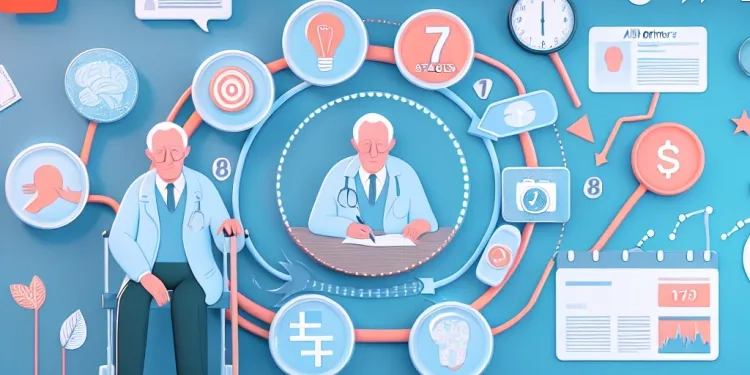
What are the stages of Alzheimer's disease?
Relevance: 28%
-

What causes Alzheimer's disease?
Relevance: 28%
-
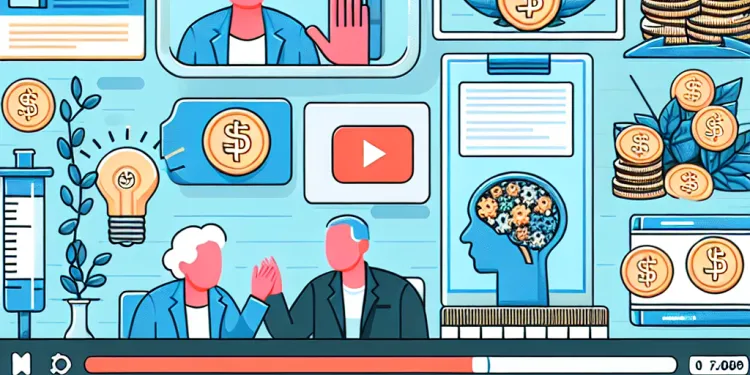
What treatments are available for Alzheimer's disease?
Relevance: 27%
-

How common is Alzheimer's disease in the UK?
Relevance: 27%
-
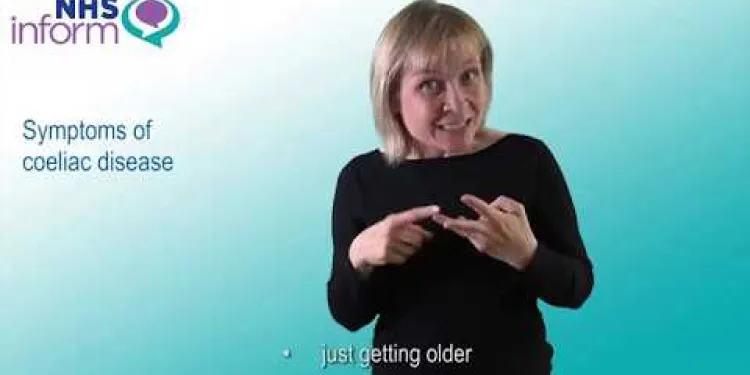
Symptoms of coeliac disease
Relevance: 26%
-
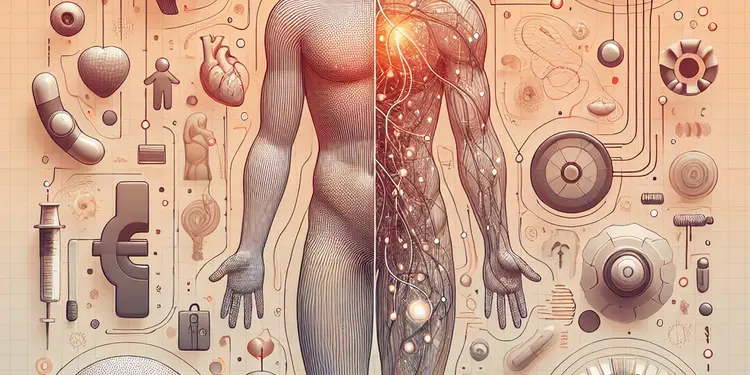
How does motor neurone disease affect the body?
Relevance: 26%
-
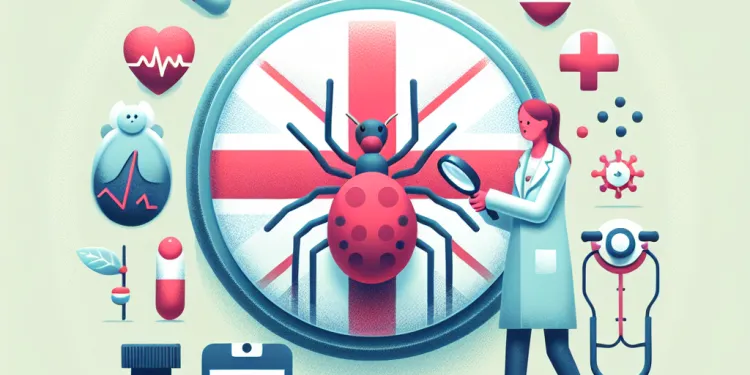
What happens if Lyme disease is left untreated?
Relevance: 26%
-

What is post-treatment Lyme disease syndrome (PTLDS)?
Relevance: 25%
-
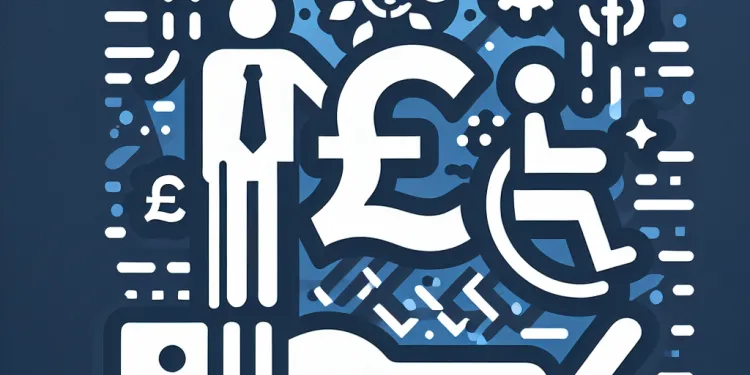
What is Parkinson's disease?
Relevance: 25%
Understanding Huntington's Disease
Huntington's disease is a hereditary neurodegenerative disorder that typically manifests in mid-adulthood. It is caused by a genetic mutation that affects the nervous system, leading to a progressive decline in motor, cognitive, and psychiatric functions. The disorder is often characterised by involuntary movements, known as chorea, but the cognitive decline is also a significant aspect of the disease and can have a profound impact on the quality of life for those affected.
Impact on Cognitive Abilities
The cognitive effects of Huntington's disease are as debilitating as the physical symptoms. Cognitive decline in Huntington's disease often begins subtly and progresses over time. Early in the disease, individuals may experience difficulties with executive functions. This includes issues with planning, organising, and multitasking. As the disease progresses, these difficulties become more pronounced.
Attention and concentration are often compromised, making it difficult for sufferers to stay focused on tasks or conversations. This decline in attention can be one of the first cognitive symptoms noticed by patients and their families. Memory is another area affected by Huntington's disease. People may struggle with both short-term and long-term memory, affecting their ability to recall recent events or remember personal history. This memory loss can lead to confusion and frustration, both for patients and their carers.
Progressive Cognitive Impairment
Language difficulties are also common as the disease progresses. Individuals with Huntington's may find it difficult to find the right words or follow complex conversations, leading to a decrease in the ability to communicate effectively. This can significantly impact social interactions and contribute to social withdrawal.
Over time, the cognitive decline in Huntington's disease can lead to more severe impairments, including a reduction in judgment and impulse control. Patients may make poor decisions or engage in risky behaviours they would not have considered before. As these cognitive symptoms worsen, they can lead to a loss of independence, requiring patients to rely more heavily on carers and family members for support.
Managing Cognitive Symptoms
While there is no cure for Huntington's disease, there are strategies and therapies that can help manage the cognitive symptoms. Cognitive rehabilitation and behavioural therapies can provide techniques to cope with memory and attention difficulties. Additionally, medications may be prescribed to address specific symptoms, such as depression or anxiety, which can exacerbate cognitive decline.
Awareness and understanding of the cognitive impact of Huntington's disease are crucial for patients, families, and carers. By recognising the cognitive symptoms and their progression, effective support systems can be developed to help individuals maintain as much independence and quality of life as possible. Research continues to advance in the quest for treatments that can more effectively address these debilitating cognitive symptoms and ultimately, find a cure for this challenging disease.
Understanding Huntington's Disease
Huntington's disease is a sickness that is passed down in families. It affects the brain and usually starts when people are adults. It happens because of a change in genes that hurts the brain, making it hard for people to move, think, and feel. People with this disease often move without meaning to, called chorea. But the biggest problem can be thinking and remembering, which makes life very hard for those with the disease.
Impact on Thinking
Huntington's disease hurts the brain just as much as it hurts the body. Problems with thinking can start slowly but get worse over time. At first, people may have trouble planning or doing more than one thing at a time. As the disease gets worse, these problems become bigger.
It can be hard for people to pay attention and focus. This makes it tough to finish things or follow talks. Losing focus is one of the first signs families notice. People may have trouble remembering things both in the short term and long term. Forgetting things can make people confused and upset, which is hard for them and their helpers.
Getting Worse Over Time
As Huntington's gets worse, talking can also become hard. People might not find the right words or might not follow along with difficult talks, which makes it hard to talk with others and might make them want to be alone.
Later, thinking problems can become more serious, like having trouble making good choices. People might do things they wouldn’t usually do. When these problems grow, people might lose some freedom and need more help from family or carers.
Helping with Thinking Problems
There is no cure for Huntington's disease, but there are ways to help with thinking problems. Special learning and talking therapies can help with memory and focus. Doctors might give medicines for sad or worried feelings, which can also help with thinking issues.
Knowing about how Huntington's affects thinking is very important for everyone involved. Recognizing the problems and how they change over time can help make strong support systems that keep people as independent as possible. Researchers keep working on finding better treatments and hopefully one day a cure for this tough sickness.
Frequently Asked Questions
What is Huntington's disease?
Huntington's disease is a genetic disorder caused by a mutation in the HTT gene. It leads to progressive breakdown of nerve cells in the brain.
How does Huntington's disease affect cognition initially?
Initially, Huntington's disease may cause mild cognitive impairments such as difficulty with concentration, planning, and problem-solving.
Does Huntington's disease lead to memory loss?
Yes, as Huntington's disease progresses, patients often experience memory problems, including difficulty recalling information and learning new things.
What cognitive abilities are commonly affected by Huntington's disease?
Commonly affected cognitive abilities include attention, working memory, executive function, and visuospatial skills.
How does Huntington's disease impact executive functioning?
Huntington's disease can significantly impair executive functions, making it difficult to plan, organize, prioritize, and manage time effectively.
Are there any specific tests used to assess cognitive decline in Huntington's disease?
Yes, neuropsychological tests are often used to assess cognitive decline, including tasks that test memory, executive function, and attention.
Can Huntington's disease cause language difficulties?
Yes, individuals with Huntington's disease may experience language difficulties, including problems with finding words, constructing sentences, and understanding complex language.
How does Huntington's disease influence decision-making abilities?
Huntington's disease can impair decision-making abilities, resulting in poor judgment and difficulty making choices.
Does Huntington's disease affect emotional regulation?
Yes, Huntington's disease can affect emotional regulation, leading to mood swings, irritability, and apathy.
At what stage of Huntington's disease do cognitive impairments become noticeable?
Cognitive impairments can appear in the early stages of Huntington's disease but typically become more noticeable as the disease progresses.
Can cognitive therapy help individuals with Huntington's disease?
Cognitive therapy may help some individuals by providing strategies to cope with cognitive deficits, although it cannot reverse the damage caused by the disease.
How do cognitive changes in Huntington's disease affect daily life?
Cognitive changes can make everyday tasks more challenging, affecting work, social interactions, and the ability to perform routine activities independently.
Is there a difference in cognitive impairment between early-onset and adult-onset Huntington's disease?
Yes, early-onset Huntington's disease tends to progress more rapidly, potentially leading to more severe cognitive impairments earlier in life.
Do genetic factors influence the extent of cognitive impairment in Huntington's disease?
Genetic factors, such as the number of CAG repeats in the HTT gene, can influence the severity and onset of cognitive impairments.
Can medication help manage cognitive symptoms in Huntington's disease?
While no medications can stop the cognitive decline in Huntington's disease, some drugs may help manage symptoms like mood changes and irritability.
How does Huntington's disease affect visuospatial abilities?
Huntington's disease can impair visuospatial abilities, making tasks such as navigating the environment or manipulating objects more difficult.
What is the role of the basal ganglia in the cognitive decline seen in Huntington's disease?
The basal ganglia, which is affected in Huntington's disease, plays a crucial role in cognitive functions such as habit formation and automatic skill performance.
Can lifestyle modifications slow cognitive decline in Huntington's disease?
While lifestyle modifications like cognitive exercises and healthy habits can support overall brain health, they cannot halt the decline caused by Huntington's disease.
Why do attention deficits occur in Huntington's disease?
Attention deficits occur due to neurodegeneration in brain areas responsible for maintaining concentration and attention.
How does Huntington's disease progression lead to apathy?
As Huntington's disease progresses, damage to areas involved in motivation and emotion can result in apathy, which is a lack of interest or concern.
What is Huntington's disease?
Huntington's disease is an illness that affects the brain.
It can make it hard to move, think, and control feelings.
People get it from their parents.
Some ways to help understand this illness are:
- Use pictures or videos.
- Talk to a doctor or a nurse.
- Ask questions if you don’t understand.
Huntington's disease is a condition that is passed down in families. It happens because there is a change in a gene called HTT. This disease causes nerve cells in the brain to slowly stop working.
How does Huntington's disease change thinking at first?
At first, Huntington's disease can make things like thinking, paying attention, planning, and solving problems a little harder.
Does Huntington's disease cause memory problems?
Huntington's disease can make people forget things. This can be like losing memories or having a hard time remembering new things.
If you want help with memory, here are some things to try:
- Write things down in a notebook.
- Use a calendar to remember important dates.
- Ask someone to remind you about important tasks.
Talking to a doctor can also be very helpful.
Yes, people with Huntington's disease may have trouble with their memory. They might find it hard to remember things and learn new information as the disease gets worse.
How does Huntington's disease affect thinking and learning?
Huntington's disease can make thinking and learning harder.
- It can be tough to remember things.
- People might find it hard to plan and organize.
- It can be difficult to pay attention.
If you have Huntington's disease, it can help to:
- Use a notebook or phone to keep track of things.
- Break tasks into small steps.
- Ask for help from others.
Some thinking skills that can be affected are paying attention, remembering things, making decisions, and understanding what you see.
How does Huntington's disease affect thinking and planning?
Huntington's disease is an illness in the brain. It makes thinking and planning hard. Here’s a simple way to understand it:
1. **Understanding**: People might find it hard to understand new information. 2. **Remembering**: Memory can be tricky. It’s easy to forget things. 3. **Planning**: It can be a struggle to plan what to do next. 4. **Organizing**: Keeping things in order might be difficult. 5. **Focusing**: Staying focused on tasks can be hard. 6. **Multi-tasking**: Doing more than one thing at a time may be challenging.
Helpful tips:
- Use a calendar to remember important dates and tasks.
- Break tasks into small, simple steps.
- Write lists to keep track of things.
- Practice doing one thing at a time.
- Ask for help when you need it.
Huntington's disease can make it hard for people to think and plan. They might find it tricky to organize things, decide what is most important, and use their time well.
What tests check thinking problems in Huntington's disease?
Doctors use special tests to see if Huntington's disease affects thinking and memory.
These tests help doctors understand how a person might need help.
Tools like picture cards or simple quizzes might be used.
If you're worried, talk to a doctor. They can explain the tests more.
Yes, there are special tests to see how well the brain works. These tests look at how well you remember things, how you make decisions, and how you pay attention.
Does Huntington's disease make talking hard?
People with Huntington's disease might have trouble with language. They could find it hard to find the right words, make sentences, and understand long sentences.
How does Huntington's disease affect decision-making?
Huntington's disease is an illness that can change the way the brain works. When people have Huntington's disease, it can be hard for them to make choices and decisions.
This means that they might take longer to decide things or make choices they wouldn't normally make. It can help to break choices into small steps and take extra time to think about them.
Using pictures and simple words can also make decisions easier. Friends, family, or carers can support by talking through choices and writing things down.
Huntington's disease can make it hard for people to make decisions. This means they might have trouble choosing what to do.
Does Huntington's disease affect how we control our feelings?
Huntington's disease can make it hard to control feelings. People might feel sad, angry, or worried more than usual. They might find it hard to stay calm.
Using tools like a feelings chart or talking to someone can help. Drawing or writing about feelings can also make it easier to understand them.
Yes, Huntington's disease can make it hard to control feelings. This can cause changes in mood, getting angry easily, and not caring about things.
When do problems with thinking start in Huntington's disease?
Huntington's disease can make it harder to think clearly. This can happen early on, but it usually gets worse as time goes on.
Can thinking therapy help people with Huntington's disease?
Huntington's disease is a sickness that affects the brain. It can be hard for people with this disease to think clearly and control their movements.
Thinking therapy is a way to train the brain to think in new ways. It can help people feel better and solve problems.
If you or someone you know has Huntington's disease, thinking therapy might be helpful. It can make it easier to deal with thoughts and feelings.
Tools like picture cards or talking with a helper can make therapy easier.
Thinking therapy can help some people. It gives ways to deal with thinking problems, but it can't fix the damage from the sickness.
How does Huntington's disease change thinking and affect everyday life?
Huntington's disease is an illness that changes the way people think. This can affect how they do things every day.
Changes in how we think can make simple tasks harder. This can make work, talking to friends, and doing daily activities by ourselves more difficult.
Here are some ways to help:
- Use a planner or calendar to remember important things.
- Break big tasks into smaller, easier steps.
- Ask friends, family or support groups for help if you need it.
- Take breaks if you start to feel tired or overwhelmed.
Does Huntington's disease affect thinking differently if it starts early or in adulthood?
Yes, Huntington's disease in kids can get worse faster. It might cause serious brain problems sooner.
Do genes affect how much Huntington's disease affects thinking?
Huntington's disease is a condition that affects the brain. It can make thinking and remembering things harder.
This question asks if genes, which are like instructions in our bodies, change how much Huntington's disease affects a person's mind.
If you find reading hard, you can break the text into small parts. Use a ruler or your finger to help you follow the words.
Tools like audiobooks or text-to-speech apps can also help by reading the words out loud.
Genes can affect how our brains work. One important gene is the HTT gene. This gene has something called CAG repeats. If there are many CAG repeats, it can make brain problems start earlier or be more serious.
Can medicine help with thinking problems in Huntington's disease?
Huntington's disease can make it hard to think clearly. Medicine might help with these problems.
Here are some ways to help understand:
- Simple words: Use easy words to explain things.
- Short sentences: Keep sentences short so it's easy to read.
- Pictures: Use pictures or drawings to show what you mean.
- Help tools: Use special reading tools or apps if you need help.
No medicine can stop the brain problems in Huntington's disease. But, some medicines can help with feelings and mood swings.
How does Huntington's disease change the way we see and understand spaces?
Huntington's disease can make it hard for people to see and understand where things are. This is called visuospatial ability. It means how we see and remember spaces and objects.
People with Huntington's might find it hard to:
- Tell where objects are.
- Know how far things are, like when catching a ball.
- Understand maps or puzzles.
To help with this, you can:
- Use clear pictures or drawings.
- Practice with simple puzzles.
- Use apps or tools that help practice these skills.
Huntington's disease can make it hard to see where things are. This makes it tricky to move around or handle things.
How does the basal ganglia affect thinking problems in Huntington's disease?
The basal ganglia is a part of the brain. It helps with movement and thinking.
In Huntington's disease, this part of the brain does not work well.
This can cause problems with thinking and remembering.
Using pictures or videos can help you understand this better. Talking to a doctor can also give more information.
The basal ganglia is a part of the brain that helps us think and learn. It is important for making habits and doing things without thinking, like riding a bike. Huntington's disease can make this part of the brain not work well.
Can changing how we live help slow down thinking problems in Huntington's disease?
Doing brain games and staying healthy can help keep your brain strong. But they cannot stop Huntington's disease from getting worse.
What causes attention problems in Huntington's disease?
Huntington's disease can make it hard to focus or pay attention. Let's talk about why this happens.
1. **Brain Changes**: In Huntington's disease, parts of the brain get damaged. This can make it difficult to concentrate.
2. **Memory Issues**: Sometimes, people may find it hard to remember things, which can affect their focus.
3. **Fatigue**: Feeling very tired can make paying attention harder.
4. **Stress and Mood**: Feeling worried or sad can also make focusing a challenge.
A few things can help with attention problems:
- **Break Tasks**: Do one small thing at a time.
- **Use Timers**: Set a timer to help stay on track.
- **Take Breaks**: Have short breaks to rest.
- **Ask for Help**: It's okay to ask for help from friends or family.
Attention problems happen because some parts of the brain get weak. These parts help you focus and pay attention.
How does Huntington's disease make people lose interest?
Huntington's disease is an illness that affects the brain. As the illness gets worse, it can cause people to lose interest in things. This is called apathy.
If you have trouble reading, try:
- Reading with a helper or friend.
- Breaking the text into smaller parts.
- Using a ruler to help focus on one line at a time.
- Listening to the text read aloud.
As Huntington's disease gets worse, it can hurt parts of the brain that help us feel motivated and have emotions. This can make a person feel apathy, which means they don't feel interested or care about things.
Here's how to make reading this easier:
- Read with a friend or family member who can help explain.
- Use pictures to help understand the words.
- Read one sentence at a time and take breaks if needed.
Useful Links
This website offers general information and is not a substitute for professional advice.
Always seek guidance from qualified professionals.
If you have any medical concerns or need urgent help, contact a healthcare professional or emergency services immediately.
Some of this content was generated with AI assistance. We’ve done our best to keep it accurate, helpful, and human-friendly.
- Ergsy carfully checks the information in the videos we provide here.
- Videos shown by Youtube after a video has completed, have NOT been reviewed by ERGSY.
- To view, click the arrow in centre of video.
- Most of the videos you find here will have subtitles and/or closed captions available.
- You may need to turn these on, and choose your preferred language.
- Go to the video you'd like to watch.
- If closed captions (CC) are available, settings will be visible on the bottom right of the video player.
- To turn on Captions, click settings .
- To turn off Captions, click settings again.
More Items From Ergsy search
-

How does Huntington's disease affect cognition?
Relevance: 100%
-

What is Huntington's disease?
Relevance: 82%
-

What are the symptoms of Huntington's disease?
Relevance: 81%
-

Is Huntington's disease fatal?
Relevance: 80%
-

How is Huntington's disease diagnosed?
Relevance: 77%
-

What causes Huntington's disease?
Relevance: 75%
-

Can Huntington's disease be cured?
Relevance: 73%
-

What research is being done on Huntington's disease?
Relevance: 72%
-

Can lifestyle changes help manage Huntington's disease?
Relevance: 71%
-

How does Huntington's disease affect emotions?
Relevance: 71%
-

Can Huntington's disease be prevented?
Relevance: 71%
-

What is the role of genetic testing in Huntington's disease?
Relevance: 68%
-

At what age do symptoms of Huntington's disease typically appear?
Relevance: 68%
-

What kinds of specialists are involved in treating Huntington's disease?
Relevance: 67%
-

How does Huntington's disease affect movement?
Relevance: 67%
-

What is Juvenile Huntington's disease?
Relevance: 56%
-

How is Huntington's disease inherited?
Relevance: 54%
-

Are there treatments available for Huntington's disease?
Relevance: 53%
-

What support is available for families affected by Huntington's disease?
Relevance: 47%
-

What role does the HTT gene play in Huntington's disease?
Relevance: 45%
-

Are there psychological impacts of menopause that affect cognitive health?
Relevance: 35%
-

Should women take cognitive tests during menopause?
Relevance: 34%
-

Do all women experience cognitive decline after menopause?
Relevance: 34%
-

What are the signs of early cognitive decline related to menopause?
Relevance: 34%
-

How do cognitive changes in older adults influence driving risk?
Relevance: 32%
-

How is Alzheimer's disease diagnosed?
Relevance: 32%
-

How can healthcare providers support women in managing menopause-related cognitive changes?
Relevance: 31%
-

What are the primary symptoms of motor neurone disease?
Relevance: 29%
-

Who is at risk of developing Alzheimer's disease?
Relevance: 29%
-

Can Alzheimer's disease be prevented?
Relevance: 28%
-

What is Alzheimer's disease?
Relevance: 28%
-

What are the stages of Alzheimer's disease?
Relevance: 28%
-

What causes Alzheimer's disease?
Relevance: 28%
-

What treatments are available for Alzheimer's disease?
Relevance: 27%
-

How common is Alzheimer's disease in the UK?
Relevance: 27%
-

Symptoms of coeliac disease
Relevance: 26%
-

How does motor neurone disease affect the body?
Relevance: 26%
-

What happens if Lyme disease is left untreated?
Relevance: 26%
-

What is post-treatment Lyme disease syndrome (PTLDS)?
Relevance: 25%
-

What is Parkinson's disease?
Relevance: 25%


